A new core set is an opportunity to introduce new fundamental concepts into the game, it’s also a good moment to streamline a few patterns of the game. In this article we will cover a new basic keyword and a few changes to how cards are worded.
Changing the Rules for Unique
We are simplifying the rules for unique. Starting with the new core set, the restrictions around unique will no longer consider who owns a card. The restrictions will only consider who controls a card. If at any moment a player gains control of a second copy of a unique card, the second copy is discarded instead. This simplifies the rules framework and reduces the need for adding security clauses around cards that take control or play opponent’s cards.
New Keyword: Ephemeral
Ephemeral is a new keyword, like Sincerity and Courtesy. It is found on events. The rules for it are simple: when an Ephemeral event is played, it is removed from the game instead of going to the discard pile. This is also the case if the event is cancelled, it is still removed from the game.
By introducing Ephemeral, we can add guardrails around effects that should never ever be replayed. That is the case on events that lead directly into win conditions, like Events that cause direct honor loss or honor gain. It can also be a good fit on Events that are a source of recursion or others that bring the risk of generating infinite loops.
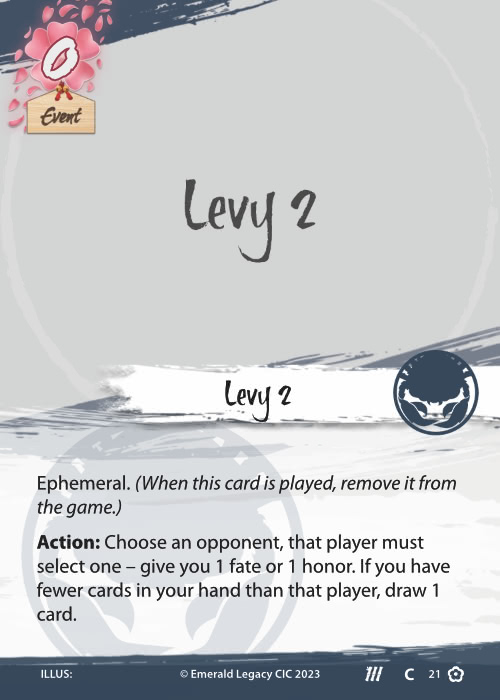
New Concept: Affinity
Affinity always comes paired with a Trait, for example “Air affinity” or “Fire affinity”. It could fit on any card type, but is commonly found on events and attachments. All the affinity cards being released with the new core set work with elemental traits, but the affinity rule is open to being used with any traits: other affinities could come in the future.
Affinity is a special condition, it is satisfied when the player controls a character with a matching Trait in play. That character can be at home or participating in a conflict, their location is not relevant for affinity: being in play is enough.
All Spells in the new core set have Affinity abilities.
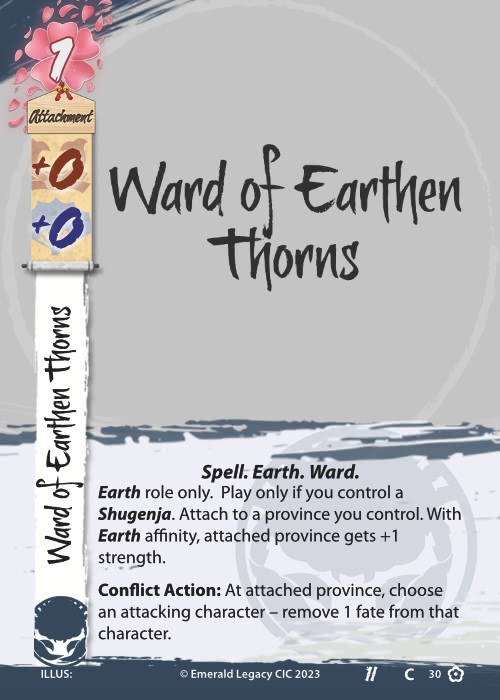
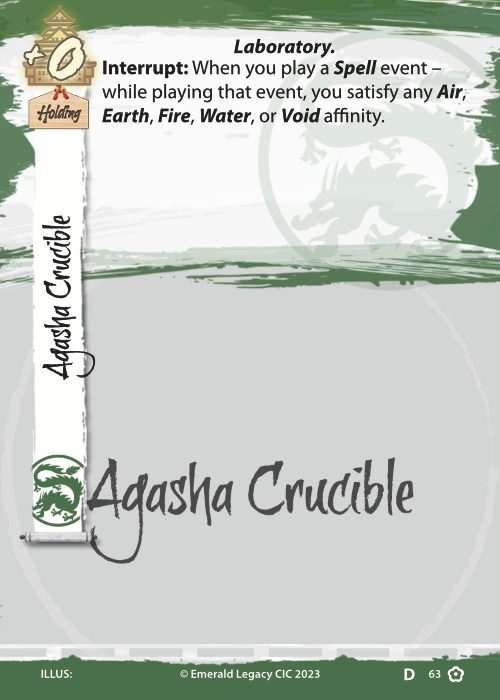
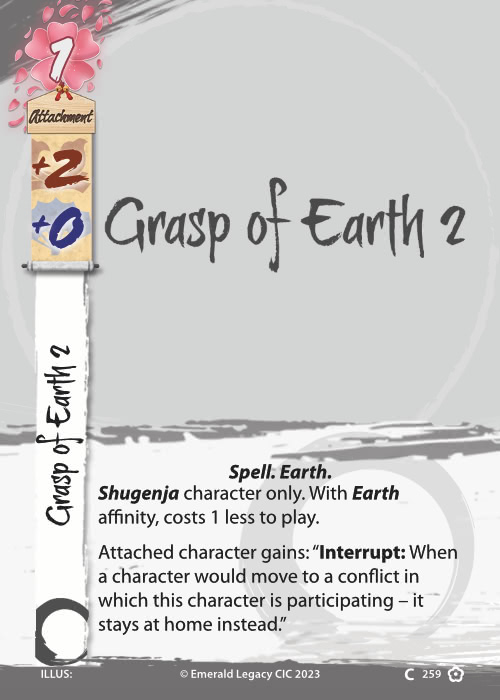
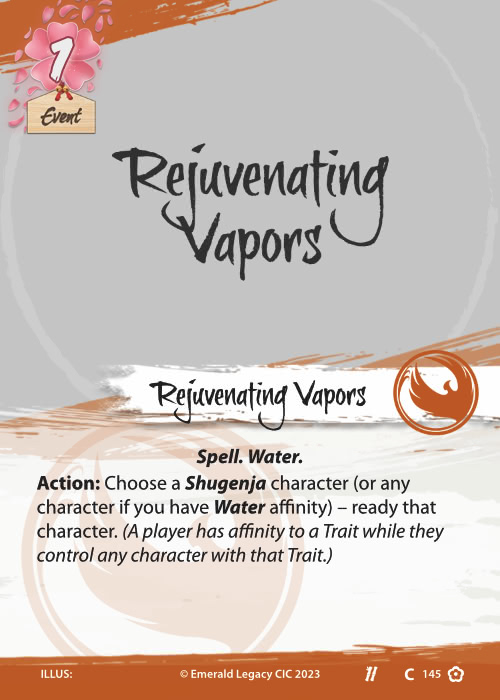
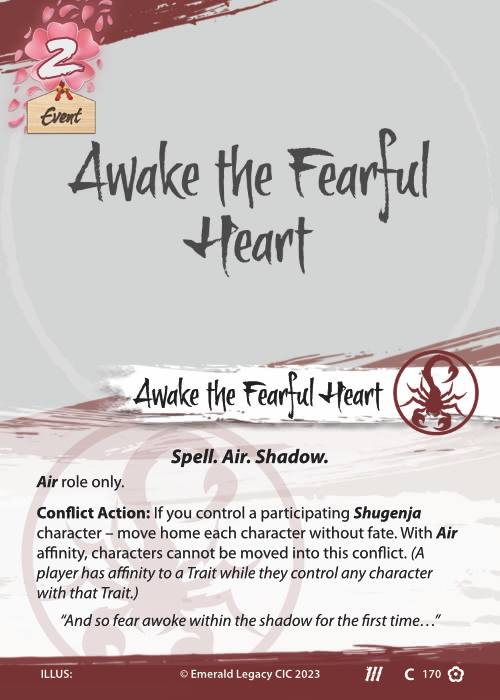
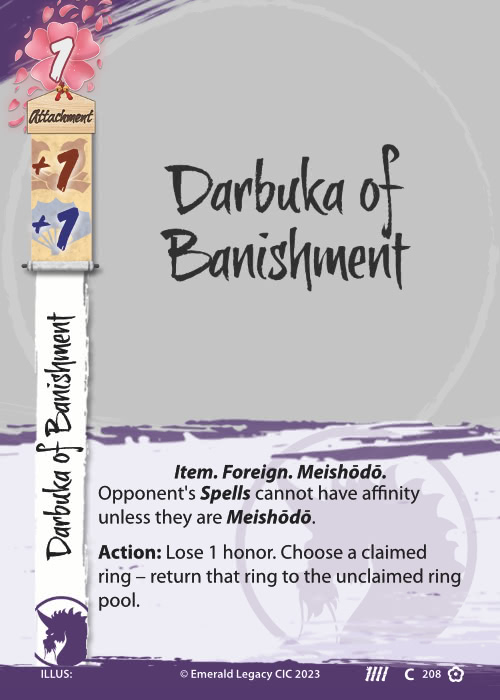
New Wording: Injure a Character
“To injure a character” means to discard that character from play if they have no fate on them. In case they have fate, 1 fate is removed from them instead. This effect is found on triggered abilities on a variety of card types.
This new expression consolidates a pattern for character destruction that could already be found on a few cards. By giving it a name, we both save ourselves some card text, and make it easier for players to reason about that kind of effect.
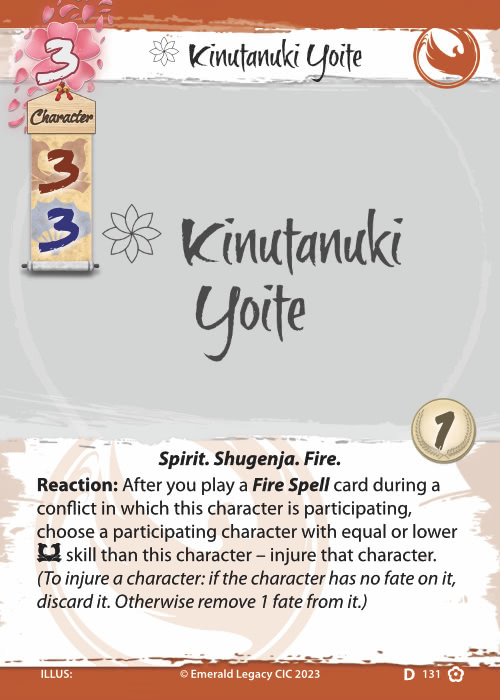
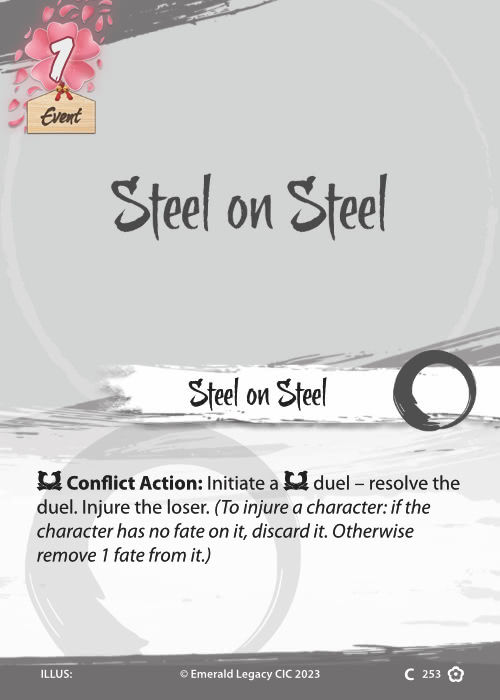
New Wording: Player Side
This is less a new wording and more about expanding the use of a previous concept. A card can be on a “player side” when it is participating in the conflict, or attached to a character participating in the conflict. The expression can be used both as “on your side” or “on the enemy side”. This small change saves us some card space, and fits better when considered for multiplayer games.
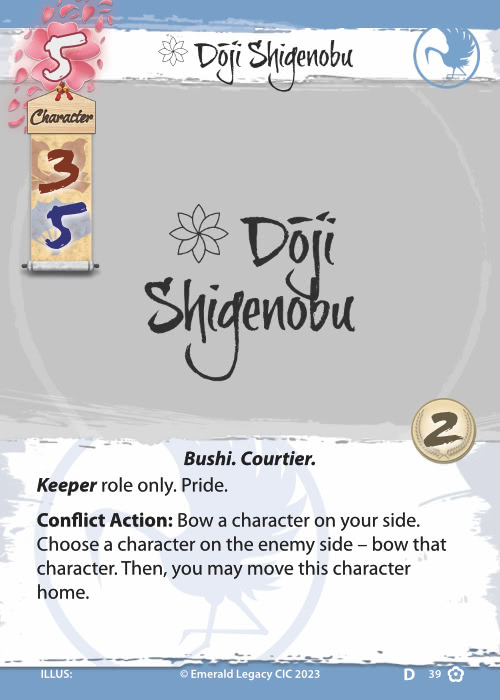
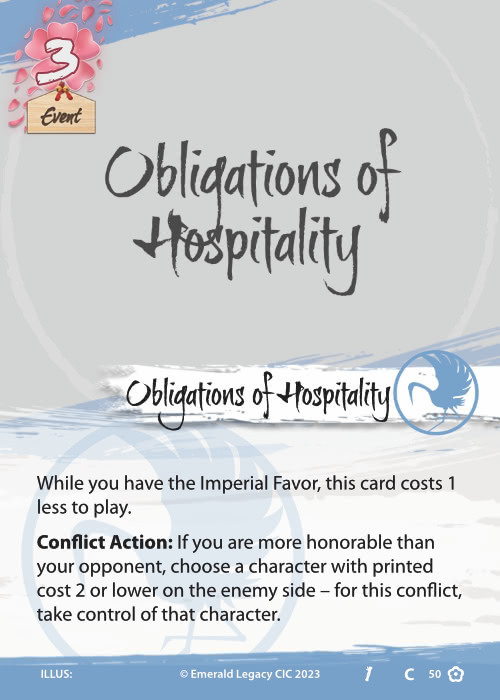
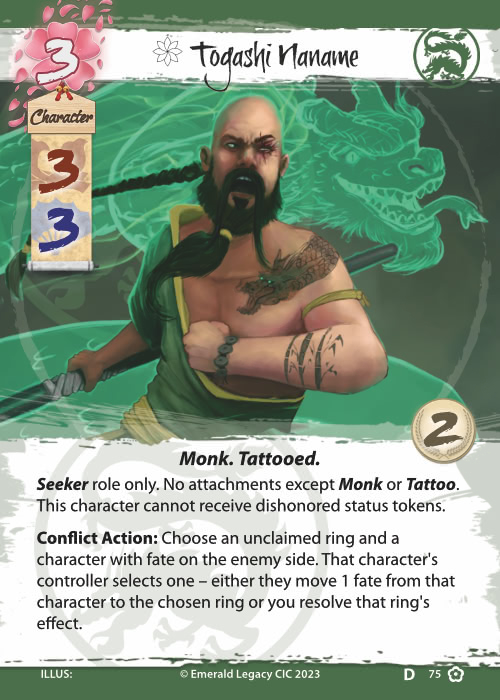
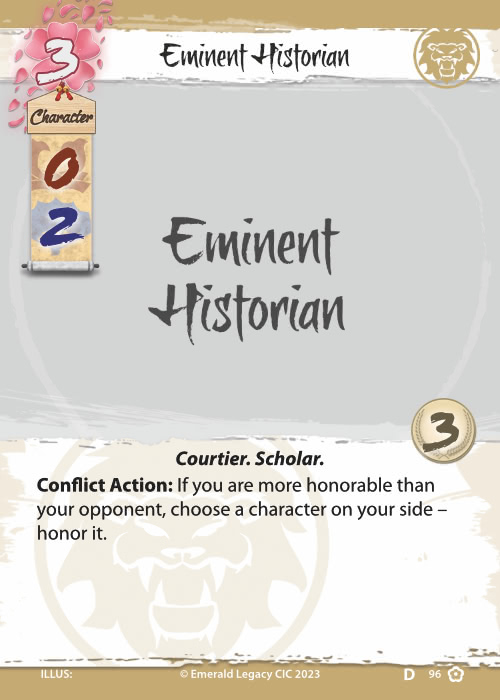
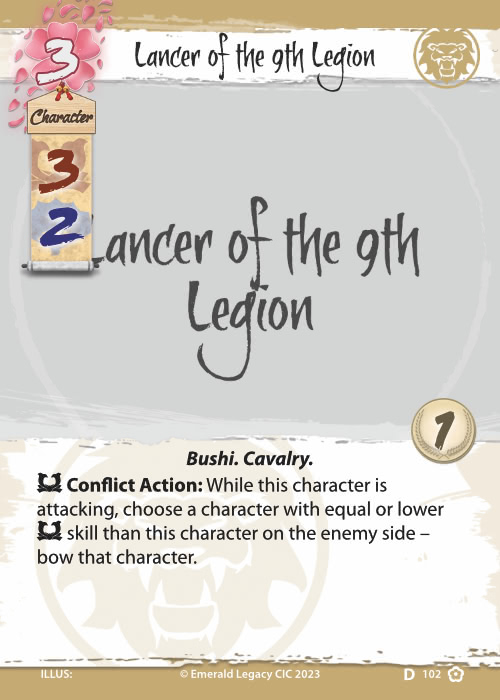
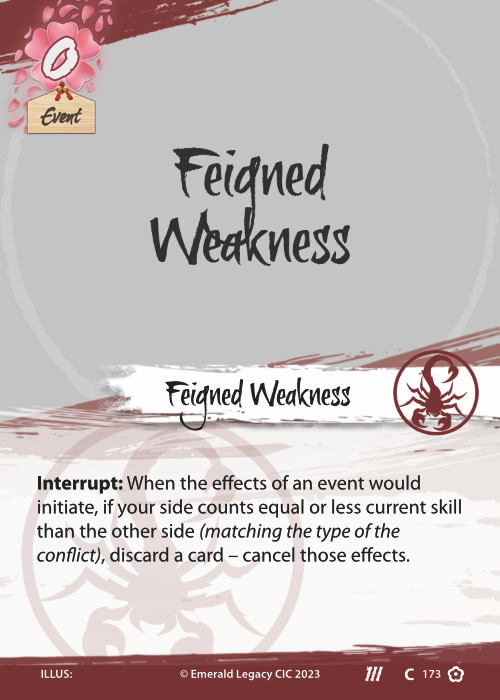
And that’s all for today! As always, let us know what you think on Discord, Facebook, Reddit, or here in the comments! Come back tomorrow for our story Thursday.




